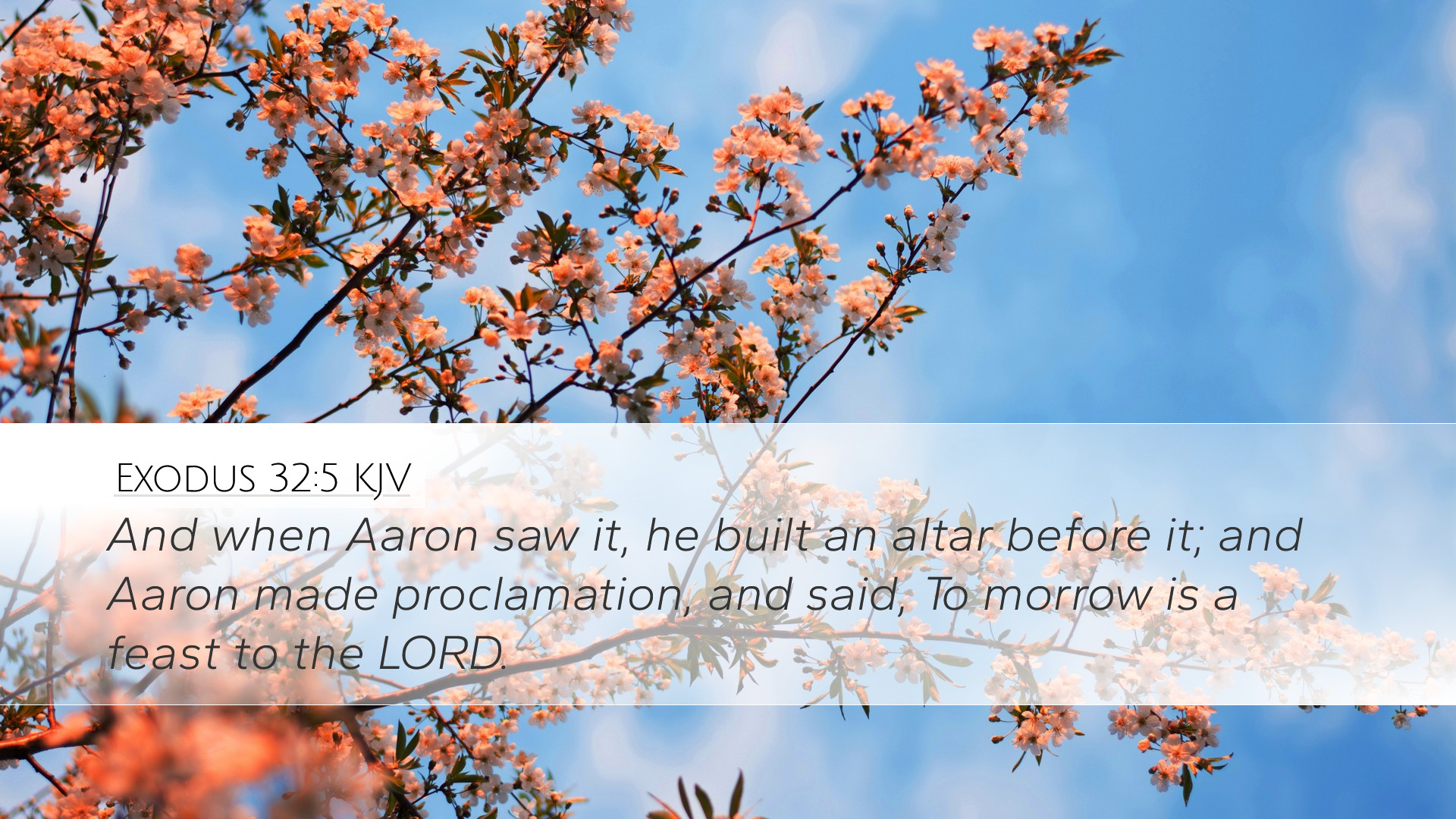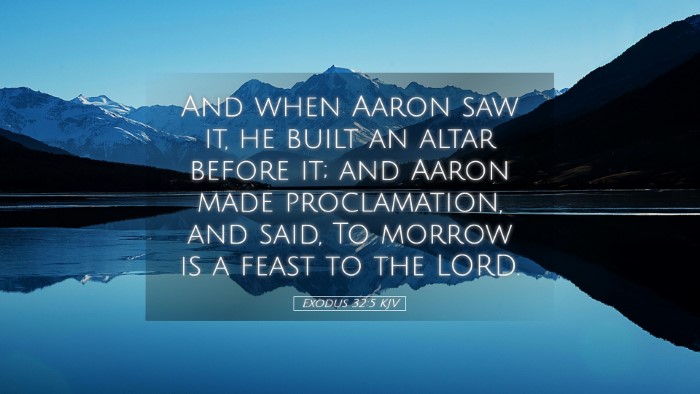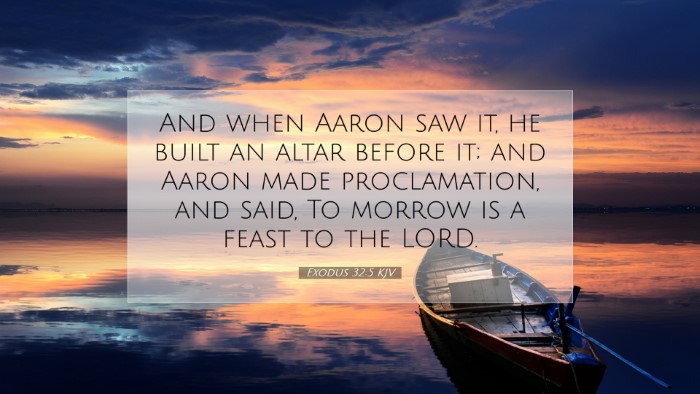Commentary on Exodus 32:5
Exodus 32:5 states: “And when Aaron saw it, he built an altar before it; and Aaron made proclamation, and said, To morrow is a feast to the LORD.” This verse captures a pivotal moment in Israel’s history—a moment marked by significant theological implications as well as the dynamics of leadership and idolatry.
Contextual Overview
The setting of this verse occurs when Moses has gone up to Mount Sinai to receive the Law from God. In his absence, the people, anxious and unsure, turn to Aaron and demand a god they can see and touch. Aaron, instead of providing spiritual leadership, succumbs to the people’s requests prompting a well-known incident of idolatry. This context is essential for understanding the gravity of Aaron's actions and the consequences that follow.
The Apostasy of Israel
In this moment of crisis, the Israelites exhibit a significant failure in their covenant relationship with God. The desire for a tangible representation of divinity reflects widespread doubts regarding God’s leadership. Here, Matthew Henry notes that the construction of the golden calf is not merely an act of idol worship but also a profound rejection of the faith and commands that they had received. The fickleness of the people highlights human insecurity in spiritual matters.
Aaron’s Leadership
Aaron’s response to the people's demands raises questions about his leadership. Albert Barnes comments that rather than establishing firm guidance, Aaron’s allowance of an idolatrous feast contrasts sharply with the responsibilities outlined for priests. His actions demonstrate a failure to uphold the ideals of worship and reverence towards God. The phrase \"built an altar before it\" indicates a perversion of true worship—a sad irony that betrays the high calling of a priest.
The Feast to the LORD
When Aaron proclaims the festival as a feast to the LORD, it casts a spotlight on the blurring lines between true worship and idolatrous practices. Adam Clarke elucidates that this reveals a syncretism in Israel's approach to worship. They attempted to merge their old cultural practices with the worship of the one true God, thus revealing a lack of understanding of what true worship entails. Their intentions, while perhaps sincere, do not excuse their blatant disregard of God's commands.
Theological Implications
This incident addresses key theological concerns regarding idolatry, worship, and leadership:
- Idolatry: The creation of the golden calf signifies the tendency of humans to seek visible symbols of the divine, undermining God's transcendence.
- Worship: True worship cannot be mixed with idolatrous practices; it demands holiness and adherence to God's revelation.
- Leadership: Leaders bear a profound responsibility for guiding their people toward God. Aaron’s failure serves as a cautionary tale for contemporary leaders.
Reflections for Today
The lessons from Exodus 32:5 remain relevant for pastors, students, and theologians today. The constant pull towards idolatrous practices—whether in material forms or contemporary ideologies—continues to challenge the church. The need to reinforce the importance of a pure and undefiled worship of God should be at the forefront of Christian teaching and practice.
Additionally, we must learn from Aaron’s failure to maintain fidelity to God’s commands. In positions of leadership, integrity and fidelity to the truth are paramount. Spiritual leaders should not capitulate to the pressures of cultural conformity but should instead redirect followers to the teachings of Scripture.
Conclusion
Exodus 32:5 is a powerful reminder of the consequences of spiritual compromise. The narrative intricately weaves together themes of idolatry, leadership, and worship into the fabric of Israel’s identity as God’s chosen people. As we reflect upon this verse, let us strive towards a deeper understanding of God’s holiness and our call to worship Him in spirit and in truth.


